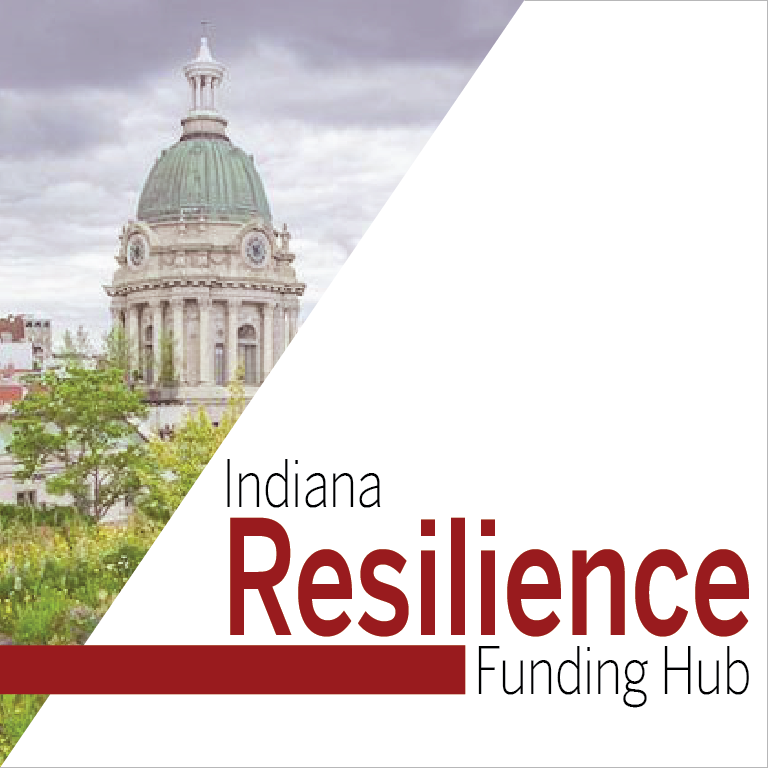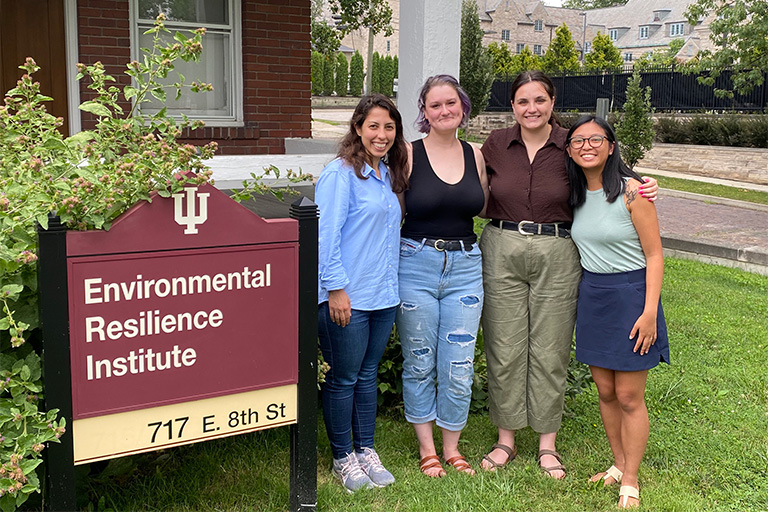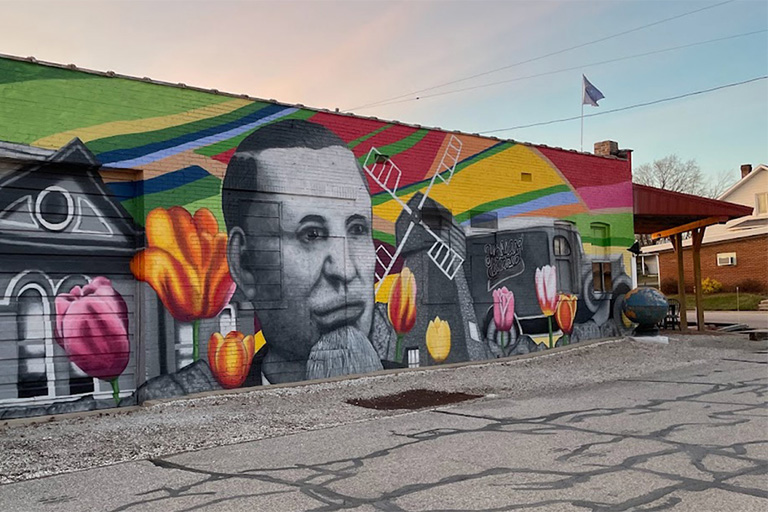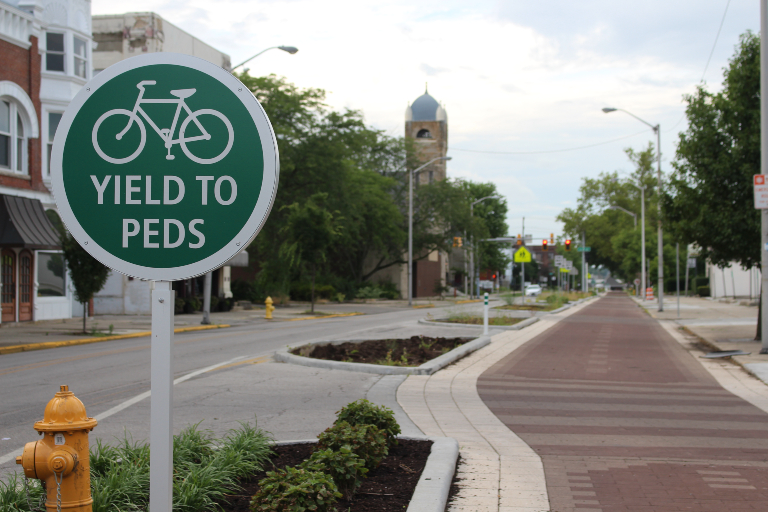A year after passage of the Inflation Reduction Act and nearly two years after the Infrastructure Investment and Jobs Act became law, billions of dollars for climate and resilience projects are being awarded to communities, businesses, and nonprofits across the US.
To help smaller Indiana communities compete for these funds, Indiana University’s Environmental Resilience Institute and Center for Rural Engagement launched a joint program earlier this year called the Indiana Resilience Funding Hub. Made possible by the Rural Climate Partnership and the Energy Foundation, the hub provides free resources targeted at communities with fewer than 50,000 residents as they identify, prepare, and submit grant applications.
“It doesn’t matter how much money is available if communities don’t have the resources or expertise to apply for grants,” said ERI Assistant Director for Strategy and Engagement Bill Brown, who leads the hub. “In our conversations with communities and entities across Indiana, it’s clear that smaller cities and rural towns are invested in the sustainability and resilience of their communities. Through the hub, we’ve been able to channel that energy into competitive grant proposals that may not have been submitted otherwise.”
During an active summer, the hub team selected the first four partners to receive intensive support, with projects spanning community walkability, transportation safety, and public outreach related to watershed management. In addition, the hub provided information and assistance to dozens of other Hoosier entities, primarily nonprofits and local governments.
Through the Indiana Resilience Funding Hub, the Town of Holland, a community of around 700 residents in the southwestern part of the state, applied for a planning grant to create a pedestrian corridor that promotes social connectedness, public safety, and environmental resilience. The project would boost the accessibility of community assets, such as the town’s park, elementary school, and medical center, while supporting alternative modes of transportation.
Holland native and Cass Township board member Lee Bilderback, who contributed to the grant application process, said Holland typically relies on volunteers to write and submit grants. Partnering with the hub “made the process more feasible and less stressful,” he said.
“The hub's representatives were patient and willing to guide us every step of the way.”






